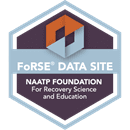After extensive staff training and successful implementation of Mindfulness Practice into our client’s daily schedule, Jaywalker has become a Certified “Mindfulness In Recovery” treatment provider! John Bruna, founder of the Mindful Life Program and creator of the Mindfulness in Recovery Workbook, developed a curriculum that is universal, accessible and practical. Mindfulness in Recovery integrates seamlessly with 12-Step recovery, providing skills that directly link to the 12 Steps, a mainstay of the Jaywalkers philosophy.
Mindfulness in Recovery’s primary mission is to provide our clients with skills, activities and a supportive community to cultivate mindfulness in their daily lives, empowering them to make healthy choices in alignment with their personal values and beliefs so they can live meaningful lives in recovery. Mindfulness in Recovery was designed to support members of all faiths and spiritual traditions, as well as those without a spiritual tradition.
Throughout our lives, we have all learned to do many things to survive. However, few of us have ever been taught how to train our minds. Without training, our minds can easily get caught up in every fear, worry, desire, or impulse that arises.
In active addiction, we make unhealthy choices that do not support a life filled with joy, purpose and meaning. Implementing a Mindfulness practice into our lives allows us to consciously attend to what is deeply important to us. We are all worthy of love, belonging and recovery.
Our clients learn to meditate, set clear intentions for their day, and cultivate specific skills of living mindfully including loving-kindness, compassion, equanimity, wisdom, skillful action, and attention. The 12 Steps reminds us to take recovery ‘one day at a time’, and mindfulness takes that one step further – take life one moment at a time.
One of our Jaywalker Alumni had this to say about Mindfulness in his own recovery:
“Mindfulness meditation transformed my life.”
I say this not to be dramatic, but because it’s true. For as long as I can remember I have been ruled by my thoughts. Eternally distracted, not a moment passed by without my scattershot mind wandering off to reflect on what might have been, what could have been, what may be, or what I could be doing better now. I was never present, and honestly I didn’t even have the wisdom to know that being present was exactly what I needed.
An active meditation and mindfulness practice has changed that. I hated it at first. I was coming off a serious meth run and the thought of sitting in silence and allowing my mind to run wild was almost too much to bear. I’d close my eyes and it was as if the dial on my thoughts was cranked up to eleven. I was miserable, but I persisted, and like anything else the more I practiced returning to the breath and emptying my mind, the easier it got.
Over time I began to become aware of my thoughts before they began to wander, and I would return to the breath before the distraction began. Meditation ceased to be an awful chore and instead became a calming interlude. The more I meditated the more I became aware of my thoughts outside of my meditation, and the more that I became aware of them the more I began to be able to calm them, slow them, and redirect them in more constructive directions. Bit by bit, mindfulness allowed me to spend more time in the present moment, unencumbered by distraction.
I’m finally able to show up for my life, a life I didn’t even know I was missing.”
Our own Stefan Bate, Chief of Clinical Operations at Jaywalker, will be joining John Bruna as Keynote Speakers at the 44th Annual Winter Symposium on Jan. 31st from 1:30-3:00pm. Their topic is Mindfulness: A Bridge to the 12-Steps.

As Chief Executive Officer Bill provides leadership and manage all day-to-day operations of Jaywalker Lodge, an extended care residential addiction treatment program for adult men.




